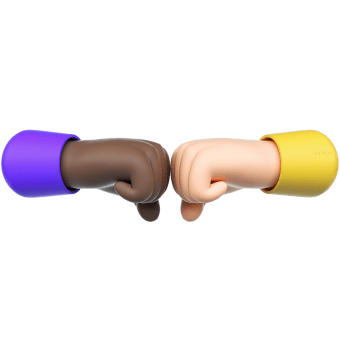"Where's my money?" — how publishers get paid

Perhaps this is the most popular question from publishers (just after “How to start” and “Where should I drive my traffic”). It’s asked in tickets and personally to managers, discussed in Telegram channels, on the forums, on social networks — and it wouldn’t be honest if we said: “We have not seen anything.” Don’t worry, we see and hear you and we’re doing our best to solve those particular issues that cause so many troubles, as soon as possible. It’s now time to clarify everything and once again remind you about how commissions are paid to publishers and what awaits them next year.
What you will learn in this article:
- Commission payment process
- What affects the duration of commission payment and what publishers should expect in 2020
- Global experience: how this happens in other affiliate networks
- How can a publisher choose the “right” advertiser and make the cash flow stable?
And we will start from the very beginning: how it is done now.
Commission payment process
Let’s clarify it a little and check how the process of getting commission looks like from the inside:
1) A publisher performs a target action (sale, application, lead), and it appears in the reports of both advertiser and affiliate network.
2) The advertiser conducts verification, which means that the company should confirm or decline the orders. There are two types of verification: manual and automatic.
- If an advertiser performs manual verification, then the company checks the order status and confirms or declines them. Usually it happens once in a period of time (for instance, once a month). Up to this point, all actions remain the “On Hold” status.
- If the auto-verification is set up with an advertiser, the publishers will see much faster the number of new confirmed orders (made by users who proceeded via affiliate links) in the Reports tab of Personal Account and of course the amount of commission that they earned. Once in a short period of time (for example, a day), the order statuses are updated, and new data are loaded into the system. Example: an order is placed on Monday, delivered on Wednesday, and on Thursday (during the auto-verification) the statuses for the past 24 hours are loaded, so it’s now shown as “Confirmed”.
Until the advertiser has finished with the verification, commissions for unconfirmed orders will be kept in the “On hold” status.
3) Once the verification is finished, and if the advertiser confirms the orders, there can be two options:
- If there are funds on the advertiser’s account, the commission is transferred to the publisher’s account almost immediately after verification, and the status of “Balance will be changed to “Confirmed”.
- If there is not enough money on the advertiser’s account, the payment amount goes to the “Delayed” status first till the advertiser pays the debt.
The advantage of manual verification is that advertiser immediately sees the entire amount that the company owes to publishers by the end of the month, and pays it in all at once — so literally just a few days pass between the order confirmation and the payment. The disadvantage is that until the verification is completed, publishers will not be able to see the effectiveness from their ad space (and this is very important for testing new channels and advertising materials).
The advantages of auto-verification are that the publishers can see the performance of their Ad Space and ad materials without waiting for the verification at the end of the month — order statuses are automatically loaded into the system as soon as they are confirmed. The disadvantage is that the advertiser still replenishes the balance once in a period, so a lot of time can pass from the time when order is confirmed till the time when funds are transferred to the publisher account.
That is why publishers have a legitimate question: “All sales have already been confirmed, why does it take so long to pay?!” We usually parry it with a counter question: “What do you think is better for you: to drive your traffic and understand its efficiency within just a few days, or to drive your traffic and wait until the end of the month to understand its efficiency? ”
More than half of advertisers (those who generate most of the publishers turnover and income) work with auto-verification — this allows publishers to check the quality of their work almost immediately, without waiting for the advertiser to update the data once a month. This lengthens the period between the confirmation of funds and their payment, but speeds up the process of testing advertising campaigns (which is extremely important, especially for media buyers).
What affects the payment duration?
The more often the advertiser replenishes the balance, the faster the commissions are transferred to publishers’ accounts. Not all advertisers have the opportunity to do it every day, and there may be many reasons for the delay: for example, the advertiser has not received the money from the customers yet, orders tend to be redeemed only partially and many others (we wrote about the Hold terms earlier).
Naturally, the affiliate network is interested in ensuring that publishers will receive their rewards on time. The logic is simple: the more often the publishers receive payments, the more they invest in further promotion and it helps all participants to earn more in the process. Therefore, there is an installment payment plan for some advertisers in Admitad network — a period when the affiliate network can pay commissions to publishers from its own funds, and over the years this period has reached 2-3 months (this is how long some advertisers sometimes delay their payments). This is not a typical practice for global affiliate networks — only few of them do this, and only in the CIS.
Of course, this is good for publishers, but bad for the network, and here’s why. Firstly, the affiliate network does not have a banking license to engage in lending, and interest-free installment is very expensive in the modern world. And secondly, let’s be honest: providing a credit limit is not the mission of an affiliate network, because the main company product is quality tracking, working with databases of both publishers and advertisers, and developing tools to simplify work in affiliate marketing.
Yes, this is a very pleasant addition to the main service, but the main processes of the company should not depend on it. Since the affiliate network commission is less than the publishers income, the turnover of the affiliate network decreases. Here is why: by doing that, Admitad network turns into a publisher who invests all earned money in the further promotion of programs. This slows down the development and growth of the affiliate network (since the same resources could be used to develop new cool products).
In 2020 Admitad will stop providing the installment payment and will only pay commissions after the advertisers replenish their account in the system. It won’t be stopped completely: those advertisers who have earned the company trust over the years of working with the Admitad network (and delays for them are rare exceptions) will be able to use installment payments system, but less often and in a smaller amount than it used to be. As a result, publishers will probably experience a longer delay in payments for some programs, but this should be a short-term effect — in the long run, the transition to this updated payment system should make the payments flow stable.
Global experience
And what are the payment practices in affiliate networks outside the CIS? Everything here is faster and slower at the same time.
On the one hand, the “on hold” and payment times are approximately equal, the delays are insignificant — just a couple of days in most cases. There is no concept of “delayed funds” at all — there is only a hold time. But there is also no concept of “installment payment for advertisers” — all invoices have to be paid in a certain period, according to the previous agreement, and only from this money publishers will receive their income. If an advertiser refuses to pay, the company is banned from the network.
Law in European countries is more severe for non-payers: if the advertiser does not comply with the conditions specified in the agreement and does not fulfill the obligations to the network and publishers, the company will face serious sanctions. In addition, advertiser’s reputation risks play an important role there, as an advertiser doesn’t wish to have problems if the company doesn’t pay the publishers on time.
On the other hand, there are practically no express payments available in Europe — those are available only in a couple of affiliate networks (and Admitad is one of them). In other cases, the publisher is able to withdraw earned money once or twice a month (on a specific day). Accordingly, their promotion strategy is slightly different: they have to deal with the time lag and the possible cash gap too, so they must plan and distribute their budget in advance (for more than a month) to prevent the situation when there is no money left for promotion and life during the hot season. And for us in the CIS, this long term planning seems like a very new and surprising thing, just like express payments system for European publishers.
In each of these approaches there are pros and cons for all participants: publishers, advertisers, affiliate networks. It is impossible to say with certainty that one system is good, and the second is bad — they are different.
How can a publisher choose the “right” advertiser
and make the cash flow stable
Of course, we are not talking about all advertisers — if everyone completely delayed payments, neither Admitad nor publishers would exist. This is only about debtors, who have received a lot of orders due to publisher’s traffic, but not all companies can handle it on time.
Naturally, most of the debt closing process depends on the work of an affiliate network managers, because the network will not get profit unless the publisher gets it — this is provided for by the system, and Admitad will not earn a penny from the confirmed order if the publisher does not earn its commission. We systematically (on an everyday basis) work to close all advertiser debts, starting with the development of a payment plan together with advertiser representatives and ending with lawsuits (which can take time but lead us to a debt recovery).
But publishers also have an opportunity to affect the duration of receiving money, however, indirectly. Here are some tips that will be relevant next year when the new payment rules for advertisers will take effect:
- An updated section “Programs” will let publishers leave feedback to a program, if they have negative or positive experience of working with it. Of course, any cheating will be excluded: reviews will be checked taking into account the publisher’s statistics in the Admitad system and the ticket system so that the review is real. And real reviews will be a great opportunity to see what impressions the publishers have while working with the program and decide whether you are ready to work with it or not.
- Another Program catalogue new feature — a transparent rating. Evaluation is going to be based on several parameters, including the payment terms. Now the publisher will be able to see the real reasons why the program is situated in the catalog above or below its competitors. Accordingly, it will be possible to check the ratings from other publishers when choosing a program to work with. Advertisers, in turn, will have motivation to improve their performance, which will help them get higher in the ranking and attract more publishers.
- Diversification of assets. In order to constantly have an incoming funds stream, publishers should diversify the set of programs which they work with, and distribute the efforts and budgets for promotion between them. In each of the categories there are competitive affiliate programs that provide similar goods and rates, but they pay at different times (some faster, some longer). We never get tired of repeating: test more programs, make your own list of top programs
- Do not be afraid of the “Delayed” payments. An interesting observation: if a program has funds in the “Delayed” status, in many cases this means that it is growing too fast (including through the active work with publishers). This is typical of new large advertisers who entered the market only a year or two ago. If you are working with such a program, do not rush to disconnect from it: it hasn’t managed to stabilize cash flows yet, but it shows good demand from publishers, so some traffic should be left there. Yes, money will be withdrawn more slowly, but volumes should ultimately please you.
- Planning. Affiliate networks make the working terms with advertisers stricter, but publishers should not relax either: if you have not mastered the long-term planning, it’s a right time to do it. Sooner or later, the system will stabilyze, and it’ll become easier to predict the payment timing, cash flow will be consistent — but while the system is still in transition, you should save a part of your budget for unforeseen expenses. We have already experienced the high season, so you shouldn’t be afraid of fatal spikes.
The new payout scheme is not so terrible as some publishers and conspiracy theorists imagine it in their fantasies. Like any other system, it needs time to become stable — especially after the 11.11, Black Friday and New Year sales, because not all the goods have been delivered and paid, the turnover of all participants of the affiliate marketing chain is over the top, and it is impossible to simply transfer budgets.
And one more thing…
Also, for publishers who need to receive their money as quickly as possible, there is the Admitad Instant Payout tool. It allows you to withdraw confirmed funds within 24 hours, even before the advertiser pays the bill.
This is a very useful feature, for example, for affiliates who invest in purchasing traffic — in order to get more traffic and profit. The cash flow here works according to the principle “invest faster — earn faster”.
A quick money withdrawal allows you to quickly improve sites and business models, banners and landing pages, and hire new employees. In general, this is a useful option for publishers with any business model or traffic source.
Read more about Admitad Instant Payout here.
Therefore, you should plan ahead and select the best programs. Follow the company’s news and updates, communicate with other publishers, ask questions your publisher manager or use tickets, and please give us your feedback, because thanks to it all the most important problems and tasks are solved first and foremost.







I will wrk seller thas sait for promotion, thanks
موقع صادق للربح منه دولارات ممتاز جدا جدا اتمنى من الجميع الاشتراك فيه وشكرا للقائمين على هذا الموقع الجميل والرائع